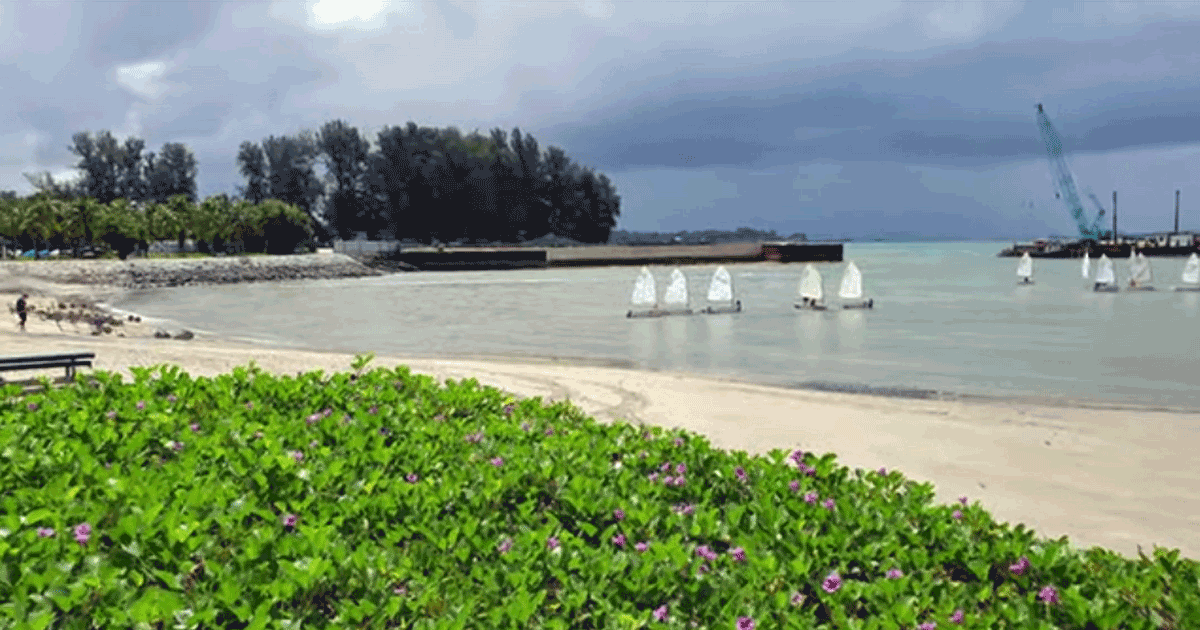Malaysia has banned the sale of sand to Singapore since October 2018.
The ban was imposed by Malaysia Prime Minister Mohamad Mahathir on Oct. 3, after he came to power during the May 2018 election.
This is according to a July 3, 2019 Reuters report citing unnamed officials in Kuala Lumpur with knowledge of the matter, but who cannot be named owing to the sensitivity of the issue.
Mahathir reportedly upset
The unnamed Malaysian government sources told Reuters that Mahathir was upset that Malaysia's land was being used to increase the size of its wealthier neighbour.
Mahathir was also reportedly concerned corrupt Malaysian officials were benefiting from the secretive business.
In response to Reuters queries, Mahathir's press secretary, Endie Shazlie Akbar, confirmed the stoppage of exports.
But he denied it was aimed at Singapore, but instead to clamp down on illegal sand smuggling.
The ban has not been made public until now.
Singapore's response
Singapore's Ministry of National Development, which oversees sand imports, told Reuters it had multiple sources of sand and was cutting back its use of the commodity.
"Sand is imported on a commercial basis from various countries to ensure resilience in our sand supply," MND said.
"The government has also been encouraging the industry to reduce the reliance on sand."
How much sand?
Singapore imported 59 million tonnes of sand from Malaysia in 2018.
It cost US$347 million, according to United Nations Comtrade data, which is based on information provided by individual countries' customs offices.
That accounted for 97 percent of Singapore's total sand imports in the year by volume, and 95 percent of Malaysia's global sand sales.
But this data can sometimes be under-reported, as in Cambodia's case.
Malaysia is Singapore's biggest source for sea sand.
Not first time sand sales banned
Mahathir had previously put in place a similar sea sand ban when he was prime minister in the 1990s.
In 2007, Indonesia banned sand exports to Singapore, citing environmental concerns.
That move impacted Singapore's construction abilities severely.
Singapore's land reclamation projects
Singapore is growing in physical size.
In 2018, Singapore grew 2.7 sq km, the biggest annual expansion in a decade.
One of the current reclamation projects is the Tuas "mega port", which will open in phases until 2040.
The first of four construction phases at Tuas will use 88 million cubic metres of materials to reclaim an area equivalent to 383 soccer fields, authorities have said.
It is due for completion in 2021 at a cost of around US$1.8 billion.
Singapore has said the Tuas port project, including the reclamation, is progressing on schedule.
The Maritime and Port Authority of Singapore (MPA) told Reuters: "Besides sand, the MPA uses materials from a variety of sources to reclaim the land. These include dredged materials from navigational channels and fairways."
If you like what you read, follow us on Facebook, Instagram, Twitter and Telegram to get the latest updates.
